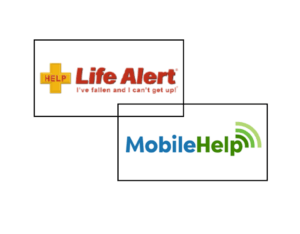More than 34 million Americans served as informal (unpaid) caregivers during the previous year according to the AARP Public Policy Institute. Oftentimes, these are adult children caring for an aging parent. They could be providing minimal assistance with activities of daily living, as part of the normal aging process, or more extensive care as was the case with my mom and her battle with MS. As care needs become greater, its not uncommon for informal caregivers to quit their jobs resulting in a loss of income. In this article I will share a sample family caregiver agreement that you can download and discuss how these could be a win-win situation for both the caregiver and care recipient.
What is a Family Caregiver Agreement
Family caregiver agreements, also called personal care agreements or eldercare agreements, are written agreements between a caregiver and a care recipient.
Typically these agreements are between family members such as an adult child and an elderly parent. However, the caregiver and care recipient do not have to be related.
This agreement clarifies the relationship between the caregiver and care recipient, establishes clear expectations as to what type of care is to be performed (i.e., personal care, groceries, errands, etc.), spells out when and where the care will be received, and includes details around how much and when the caregiver will get paid.
How Family Caregiver Agreements Work
Personal care agreements establish a formal business relationship between the care recipient (employer) and caregiver (employee). It lays out the terms and conditions of employment in writing for which the caregiver will be compensated for providing care. Having an agreement in writing ahead of time often helps to avoid potential family conflicts down the road as it clearly states who is providing the care and how much they are being paid.
It is very important that the rate of pay be fair and reasonable. In other words, the rate of pay should not be set above the going rate for the services provided in the area you reside. Typically the caregiver is paid weekly or bi-weekly as spelled out in the agreement. In some cases a lump sum payment may be made but not all states allow lump sum payments.
Also, it’s very important not to pay retroactively. This means that payment cannot be made prior to the creation of the agreement. This could have negative implications for Medicaid eligibility down the road which we will discuss next.
Family caregiver agreements must be signed by both the caregiver and care recipient. Some states require the agreements to be signed by a notary so check your states requirements.
The Importance for Medicaid Eligibility
It is important to note here that not having a family caregiver agreement in place could jeopardize the care recipeint’s eligibility for Medicaid down the road should they need to obtain assistance.
Family caregiver agreements are especially important if the person receiving care might require long-term care from Medicaid in the future, such as nursing home care. Medicaid has an asset limit in order to qualify, which for most states, is $2,000. You can check here for state specific asset limits. In an attempt to qualify, some seniors may try to “gift” some of their assets over the established limit in order to become asset eligible.
To prevent this from happening, Medicaid has a 5-year look back rule (2.5 years in California). During the “look back” period, all past asset transfers are scrutinized to ensure they were not “gifted”, and if it is found an applicant has violated this rule, a penalty of Medicaid ineligibility will result.
If you do not have a formal caregiver agreement in place, Medicaid most likely will consider any payments made to the caregiver as gifts and therefore in violation of the look back rule. A personal care agreement provides proof that any money paid out to the caregiver by the care recipient is indeed for receipt of care services. Verbal agreements typically do not provide the proof needed by Medicaid.
In addition, the caregiver should keep a daily log showing the type of care provided, the hours worked and the payments received. This provides further proof to Medicaid that care was in fact provided should they need it.
Even if care recipients do not foresee themselves needing long-term care Medicaid in the future, personal services contracts provide a safeguard in the event that they do. For seniors who are over Medicaid’s asset limit, but require care assistance, these contracts serve as a Medicaid planning tool, as they essentially allow seniors to “spend down” their extra assets without violating Medicaid’s look back rule.
What Information Should Family Caregiver Agreements Include
Personal care agreements should include the following information:
Services to be Provided
All tasks and duties that the caregiver is expected to perform need to be included in the personal care agreement. This could include light housekeeping, laundry, going grocery shopping, providing transportation, and assisting with activities of daily living. It is also a good idea to indicate where the care is being performed, such as in the care recipient’s home.
Frequency of Services
How often (how many days a week) and for how long (how many hours at a time) services are to be provided should be included in the contract. That said, it is okay to leave the terms somewhat flexible since care needs tend to change over time. For example, the contract might state, “a minimum of 20 hours per week” or “a maximum of 40 hours per week”.
Payrate and Frequency of Payment
The contract must include the caregiver’s rate of pay, which as mentioned previously, must be no more than the going rate in the area in which one resides. Also included must be how often the caregiver is paid.
Start Date / Length of Agreement
The date that care will begin needs to be included in the agreement. Remember, it must be a future date; the contract cannot be backdated. Also, it is important to include how long the agreement will remain in effect. This may be short term, such as just a few years, or for the life of the individual.
Modification / Termination Clause
A clause allowing modification of the personal care agreement when both parties agree to the changes should be included. If the agreement is long term, it is highly recommended that the agreement be reviewed, and modified as needed, on an annual basis. A clause that allows for termination of the agreement is also recommended.
Signatures
The personal care agreement must be signed by both the care recipient and the caregiver. In some states, notarization may be required for validity purposes.
Avoid These Common Mistakes
Below are common mistakes that are made (and should be avoided). Remember, even a small mistake could cause the care recipient to be denied Medicaid in the future should they need it.
- Paying a caregiver retroactively. The care agreement should be created with a start date for future care. Care agreements are not intended to pay a caregiver for care that has already been provided.
- The caregiver does not keep a daily log. A daily log of services and payments received may be needed for Medicaid as proof that payments were made to the caregiver for services rather than given as a gift.
- Pay rate is not reasonable. If the caregiver’s pay is higher than the going rate for the type of care that is being provided, it can be considered a gift for Medicaid purposes.
- Being unaware of the rules in your state. For instance, some states require that the signed agreement be notarized, and some states do not allow for a lump sum payment for services.
Free Caregiver Agreement Templates
Below are two different versions of a caregiver agreement that you can download and use. One is slightly longer and more detailed as to the type of care being provided. The other one is shorter but still provides the information needed.
Please note that these documents and the information in them is presented to be used solely as an example and general guide and is not intended as legal advice. While consulting a lawyer is not required, you may choose to do so for further legal guidance.
Home Care Contract
Template
Family Caregiver Agreement Template
Recommended For You

Mobile Help Vs Life Alert – Comparison Review
If you are a caregiver or family member caring for an older adult, ensuring their safety and well-being is paramount. Medical alert systems provide a critical lifeline in emergencies, offering …

How to Stay Safe in the Bathroom – 9 Tips
The bathroom is the least safest room in the house and it is where the majority of falls and accidents occur among older adults. It is estimated that 1/3 of …

Caregiver Employment Application Form
Having your applicants complete a caregiver employment application form is an important first step in the hiring process. In this

Gay and Aging – Going Back In The Closet?
Sally I still remember that day when I met Sally. She had just been released from the hospital after a

Caregiver IRS Tax Rules – A Guide for Caregivers
Caring for a loved one or working as a professional caregiver involves numerous responsibilities, including understanding the relevant tax implications. The IRS has specific rules that can affect caregivers, whether …

Kitchen Tools for Seniors & Disabled – Must Haves
My mother, Barbara, had progressive MS for most of her adult life. Complications from MS, along with a stroke, left



